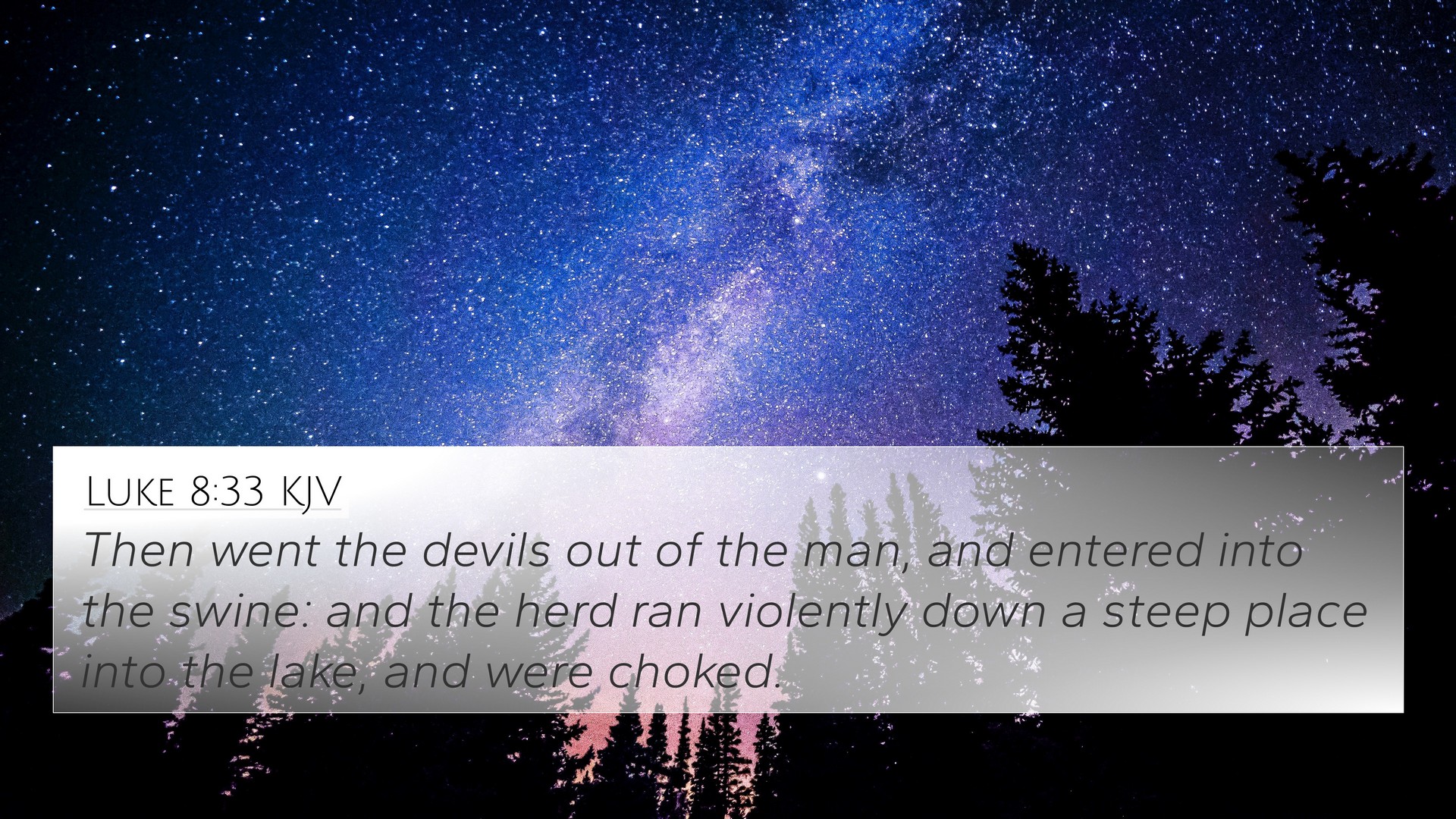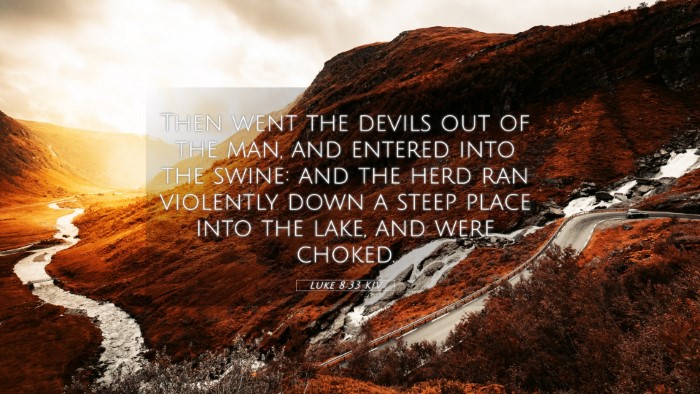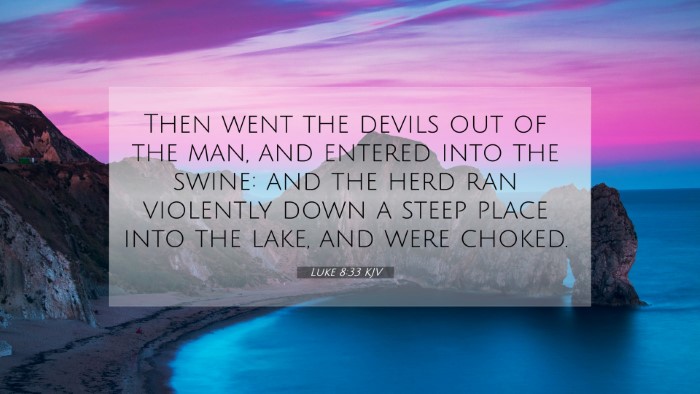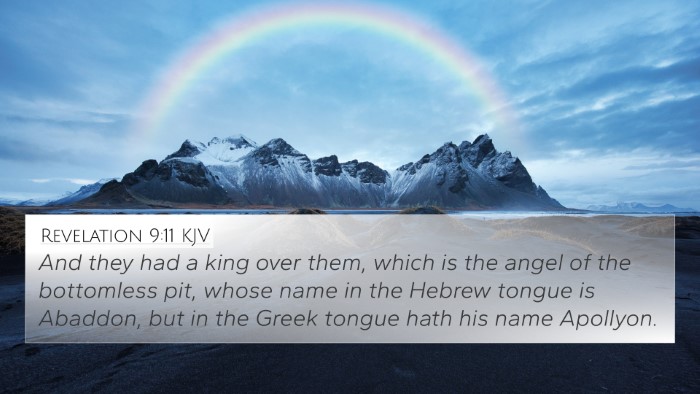Understanding Luke 8:33
Luke 8:33 states, "Then went the demons out of the man and entered into the pigs: and the herd rushed down the steep bank into the lake, and were choked."
Verse Context
This verse is central to the narrative of Jesus' authority over demonic forces. It depicts a dramatic encounter between Jesus and a man possessed by demons, highlighting not only the spiritual realm's activity but also illustrating the consequences of this encounter on both the man and the herd of pigs.
Commentary Insights
Matthew Henry on Luke 8:33
Henry emphasizes the power of Christ in casting out demons. He points out that the departure of the demons into the pigs illustrates their desire to cause destruction. The pigs' plunge into the lake symbolizes the end result of demonic influence, which is often chaos and death. Henry also notes that this incident reveals the authority of Jesus as the Son of God, capable of commanding even malevolent spirits.
Albert Barnes on Luke 8:33
Barnes discusses the theological implications of this passage, suggesting that it reflects the idea of judgment against unclean spirits. His commentary emphasizes that the demons preferred to inhabit animals rather than be sent into the abyss, showcasing their fear of divine judgment. Barnes also highlights the impact of this miracle on the community, which may have faced economic loss due to the pigs' destruction, prompting a response from the local populace.
Adam Clarke on Luke 8:33
Clarke provides a detailed analysis of the symbolism present in this verse. He describes how the pigs, considered unclean animals in Jewish law, represent the defilement caused by the demons. Clarke further illuminates the narrative by explaining the significance of the demons’ request to enter the herd rather than be sent away, highlighting the theme of sin's destructive nature.
Cross-References
This verse connects with several other Biblical passages that enhance our understanding of its themes:
- Mark 5:1-20: This passage recounts the same event, offering a parallel account that highlights the effects of Jesus’ power over evil spirits.
- Matthew 8:28-34: Similar to Mark's account, it discusses the encounter with two demoniacs, emphasizing Jesus' authority and the community's reaction.
- Luke 8:27: This verse introduces the man possessed by demons, setting the stage for the subsequent miracle.
- Revelation 20:10: Reflects on the ultimate fate of Satan and demons, paralleling the concept of divine judgment depicted in Luke 8:33.
- Romans 6:23: Discusses the consequences of sin and reinforces the destructive nature of evil, akin to the fate of the pigs.
- 2 Corinthians 11:14: Highlights the deceptive nature of evil, similar to the way the demons entered the pigs.
- John 10:10: Illustrates the contrast between Jesus, who gives life, and the enemy, who seeks destruction, reflecting the outcome seen in this verse.
Thematic Connections
This passage allows for a rich exploration of several themes:
- Authority of Jesus: The verse underscores His supremacy over spiritual forces.
- Demonic Influence: It addresses the reality and consequences of messy spiritual engagements.
- Community Impact: The economic cost to the townspeople serves as an important takeaway regarding the far-reaching effects of demonic activity.
Practical Applications
Those studying this verse can reflect on how the narrative informs our understanding of the following:
- Understanding the spiritual battle that exists against evil and darkness.
- The importance of seeking Christ's power in areas of personal struggle against sin.
- Recognizing the impact our spiritual decisions can have on our communities.
Conclusion
Luke 8:33 challenges believers to recognize the seriousness of spiritual warfare and the need for reliance on Jesus' authority. As we study parallel verses and engage in cross-referencing Biblical texts, we deepen our understanding of the pervasive themes of evil and salvation throughout scripture.






